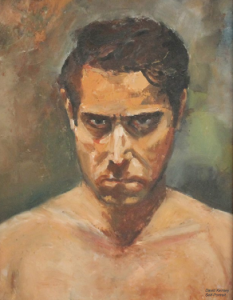David West Keirsey (August 31, 1921 – July 31, 2013)
Work
re-: Latin – ‘again‘
–imagin-: Latin imaginari – ‘picture to oneself,’
–ing: Germanic -ung – Gerund – ‘continuing action‘

My father died on July 30th, 2013 and I intend to honor him, if I can, by writing a blog about him and his ideas every year. First year, Second Year, Third Year
His ideas still have use because his ideas are slow ideas. Moreover, his ideas have wider applicability if re-imagin-ed, judiciously.
Only the educated and self-educated are free.
“… Up to that time I had learned a lot, but not at school. I began reading when I was seven. Read (most of) a twelve volume set of books my parents bought, Journeys through Bookland. Read countless novels thereafter, day in and day out. I educated myself by reading books. Starting at age nine my family went to the library once a week, I checking out two or three novels which I would read during the week. Then, when I was sixteen, I read my father’s copy of Will Durant’s The Story of Philosophy. I read it over and over again, now and then re-reading his account of some of the philosophers.” [Turning Points, David West Keirsey, 2013]

“I mention Durant’s book The Story of Philosophy because it was a turning point in my life, I too, become a scholar as did Durant, thereafter reading the philosophers and logicians—anthropologists, biologists, ethologists, ethnologists, psychologists, sociologists, and, most important, the etymologists, all of the latter—Ernest Klein, Eric Partridge, Perry Pepper, and Julius Pokorny—of interest to me now as then.” [Turning Points, David West Keirsey, 2013]
When I arrived on the scene (about 30 years later) upon which my father and I started debating about ideas. He was well educated, and more importantly self-educated, in Philosophy and Psychology. He considered himself to be the last of the Gestalt Psychologists at the end of his life.
Being a “hard” science kind of guy by nature but always being questioned by my “Gestalt” psychologist father, I always, in the back of my mind, questioned the basic assumptions taught to me in school — like the physics concept of “mass.” I couldn’t put my finger on exactly what was wrong or what issues were being finessed, for I figured that I was either ignorant or not bright enough to know better.
“If you don’t understand something said,
don’t assume you are at fault.”
— David West Keirsey
My father was called Dr. Matrix by his staff at Covina School District. He considered himself as an self taught expert in Qualitative Factor Analysis, because he had to have six semesters of statistics (quantitative and correlative) as a PhD requirement for psychology, and found that those techniques missed important factors and meaning. Rather, he looked for systematic (and wholistic) patterns in human action, using the principles of Gestalt psychology. I often would be his sounding board on his tentative propositions in characterizing the observable action patterns.





 (August 31, 1921 – July 30, 2013)
(August 31, 1921 – July 30, 2013)



